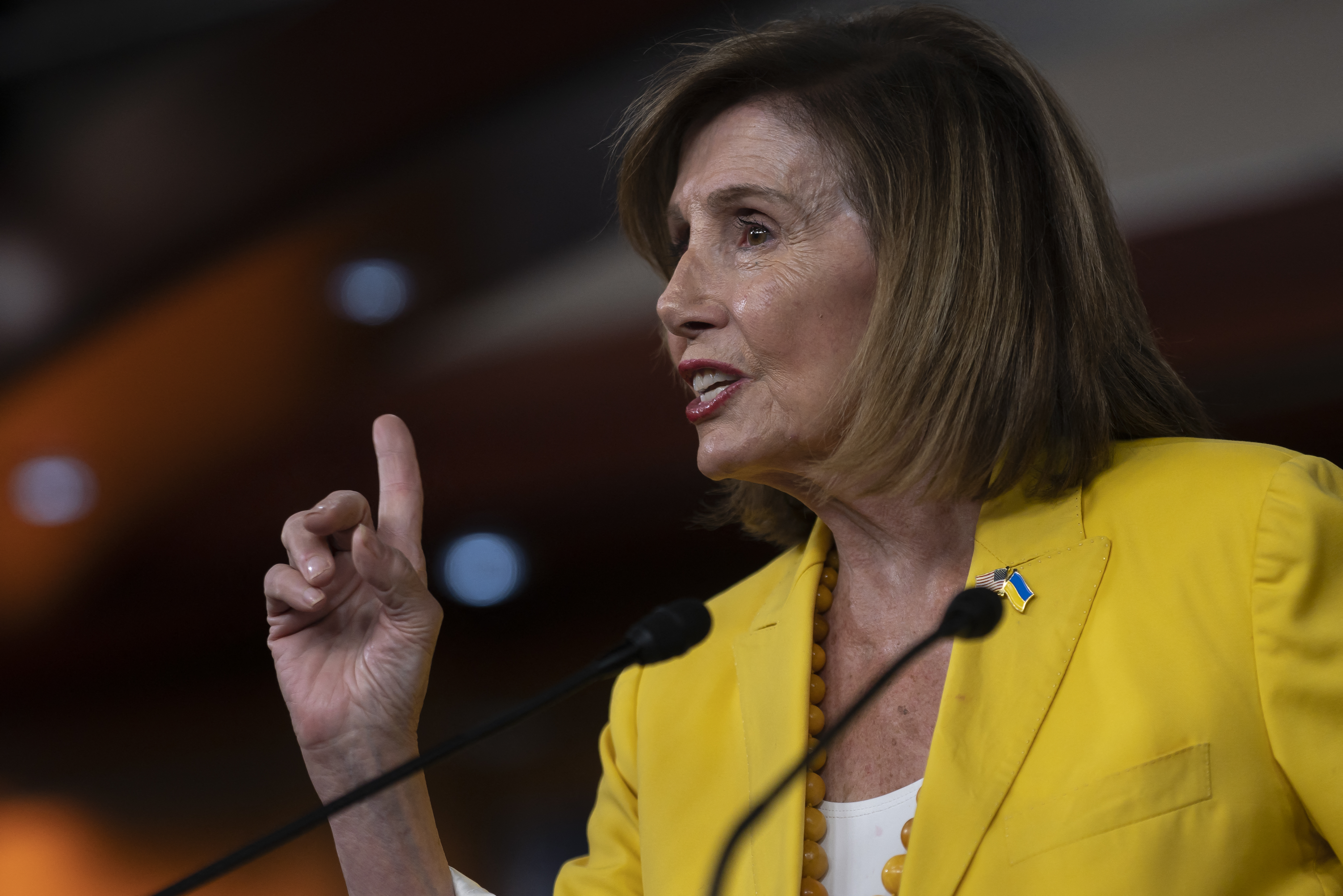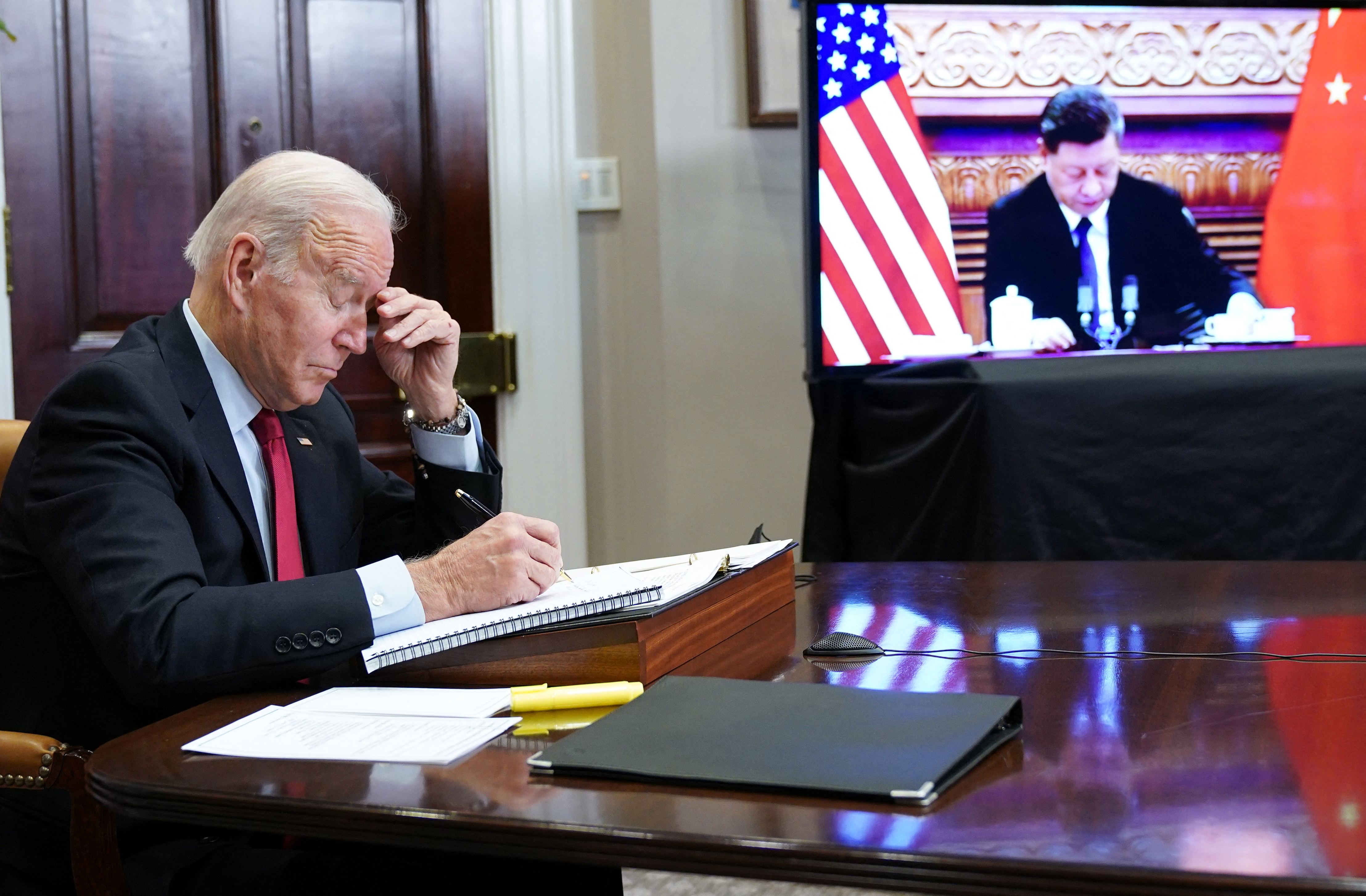Could Nancy Pelosi’s Visit to Taiwan Set Off a War?
July 28, 2022To go or not to go? That’s the billion-dollar question for House Speaker Nancy Pelosi, the third-most senior U.S. official, whose reported trip to Taiwan next month has spurred threats of a response from the Chinese military.
China, which claims the self-ruled island as part of its territory, has vehemently opposed such a visit. And the Biden administration has expressed fears the move could further antagonize Beijing. Despite the risk, analysts say it may be too late for Pelosi to back down.
If she does cancel her visit, “everyone in the world, including the U.S. allies, will see that a leader of democracy can be threatened by a dictator,” Chen Fang-Yu, an assistant professor of political science at Soochow University in Taipei, told VICE World News. “It will deal very severe damage to the U.S. leadership all over the world.”
Pelosi’s trip is significant as she is second in line to the presidency and would be the highest-ranking U.S. official to set foot on Taiwan in a quarter century. It would symbolize a strong gesture of support for the island.
Living under the constant threat of an invasion by the People’s Liberation Army across a narrow strait, the democratic island is home to more than 23 million residents and the world’s leading maker of semiconductors—the engines of the global digital economy and, increasingly, a dangerous flashpoint in U.S.-China relations. This week, Taiwan held an annual military exercise to simulate the repulsion of an invading force.
Initially scheduled in April, Pelosi’s trip was postponed after she tested positive for coronavirus. Although the 82-year-old Democrat has not publicly confirmed her upcoming itinerary, reports of a possible visit in August have already pissed off China, which opposes any diplomatic recognition—official or otherwise—of Taiwan.

Beijing has vowed to take “resolute countermeasures” if Pelosi presses ahead. “The U.S. must bear all consequences arising thereof,” said Chinese foreign ministry spokesperson Zhao Lijian, describing it as a challenge to the country’s red line.
The Chinese military also weighed in on Tuesday, pledging that it would not “sit idly by.”
Besides the public intimidation, China has privately issued threats to the Biden administration that were “significantly stronger” than previous warnings and hinted at a possible military response, the Financial Times reported on Saturday, citing people familiar with the situation.
Taken together, they have sparked alarm among White House officials that the trip could trigger a confrontation or escalate cross-Strait tensions. President Joe Biden, who has said that the U.S. would intervene if China attacks, told reporters last week that the U.S. military didn’t think Pelosi’s trip was “a good idea.”
But some analysts consider the risk of an imminent attack, whether on Taiwan or Pelosi’s aircraft, overblown.
Wen-Ti Sung, a political scientist at the Australian National University, pointed out that the core message of all recent statements from the Chinese government is an emphasis on stability, particularly before the twice-a-decade party congress later this year, where President Xi Jinping is set to secure an unprecedented third term. “There’s no reason why Beijing would shoot itself in the foot and mess up its own important power transition process by doing something too unduly provocative as to undermine the stability it is craving for,” Sung said.
Some White House officials also wondered if China was bluffing, but preferred to play it safe. On one hand, the Pentagon said on Wednesday it is prepared to mobilize fighter jets and ships to provide overlapping rings of protection and ensure a safe conduct of her visit. On the other, national security officials worked behind the scenes to dissuade her from going, sources told CNN. Pelosi’s travel plan to Taiwan is now in limbo, Bloomberg reported on Wednesday.
Nevertheless, the fact that the deliberations, which usually take place behind closed doors, have been brought out in the open could put Washington in a bind, as it is now far more difficult for the speaker to backtrack without being seen as caving to China.
“It will certainly be seen by many actors around the region, including allies such as Japan, Australia and others, as essentially giving Beijing a veto on diplomatic visits,” Sung said. It would undermine the credibility that the Biden administration has been seeking to repair in the region, he added.
It would also shift public opinion in Taiwan, where people count on high-level engagement to gauge U.S. commitment and are skeptical on whether Washington would come to its aid in the case of a Chinese invasion. The answer has always been uncertain, given the lack of diplomatic ties or a formal defense treaty between the U.S. and Taiwan. And Washington has for decades been deliberately ambiguous on the issue so as to avoid provoking Beijing. Biden’s remarks on defending Taiwan were later walked back by White House officials, who insisted the strategic ambiguity remained.
But in the face of an increasingly bellicose China, Taiwan and other U.S. allies have been calling for more clarity, which the Biden administration has failed to deliver.
The topic will come up in Biden’s fifth phone call with Xi on Thursday, where Biden is expected to set guardrails, as he has attempted in previous conversations. “Pelosi’s position does not represent Biden and he will be asking Xi to treat it with poise and composure and not overreact militarily,” Sung said.

If played right, however, Biden could distance himself from the visit, while using parliamentary diplomacy to reassure Taiwan and allies in the region of Washington’s commitment. If Pelosi steps down as speaker in January as she promised, it would also give Biden the opportunity to put the episode behind them and reset bilateral relations—an ideal situation where Washington could have “the best of both worlds,” Sung said.
The U.S. policy on Taiwan has long been a balancing act, and the latest episode is a matter of recalibration to find a way forward. “The U.S. is trying to figure out how much more assertive to be with China, yet not to the point where it's reckless or escalates things unnecessarily,” said Chieh-Ting Yeh, an advisor of the International Taiwan Studies Center at National Taiwan Normal University. “That bar is still moving constantly,” he added.
